PRODUCT DESCRIPTION
LOCTITE® 5939™ provides the following product characteristics:
Technology MS® – Polymer
Chemical Type Modified silane polymer
Appearance (uncured) Smooth grey liquidLMS
Components One part – requires no mixing
Viscosity Paste
Cure Atmospheric moisture
Application Sealing
LOCTITE® 5939™ is a high strength, high elongation adhesive used for elastic bonding and sealing on various substrates. It is a one component adhesive/sealant based on a modified silane polymer, which cures by reaction with moisture to an elastomeric thermoset product. The skin formation and curing times are dependent on humidity, temperature, and joint depth. By increasing the exposure to moisture these times can be reduced. LOCTITE® 5939™ is sag-resistant leading to high initial tack. It is non-corrosive and free of solvents, isocyanates, silicones, PVC, and is odorless. It demonstrates good adhesion without primer to a wide variety of substrates and is compatible with suitable paint systems. The adhesive/sealant also demonstrates good UV resistance and can therefore be used for interior and exterior applications.
TYPICAL PROPERTIES OF UNCURED MATERIAL
Density @ 25 °C, g/cm³ 1.47 to 1.53LMS
Extrusion Rate @ 23°C,
D=3.5mm, 3 bar, 15 s, g
5 to 40LMS
Flow, ISO 7390, mm 0.25
Flash Point – See MSDS
TYPICAL CURING PERFORMANCE
Under normal conditions, the atmospheric moisture initiates the curing process. The product develops functional strength in 24 hours and fully cures in 7 days.
Fixture Time
Fixture time is defined as the time to develop a shear strength
of 0.1 N/mm².
Fixture Time, ISO 4587, minutes:
PVC 105 to 120
Grit Blasted Mild Steel 210 to 225
Skin Over Time
Skin over time is the time the surface of the adhesive forms a skin upon exposure to atmospheric moisture at 25 ± 2 °C, 50 ± 5% RH.
Skin Over Time, minutes 3 to 12LMS
Cure Speed vs. Time
The graph below shows the shear strength developed over time at 22 °C / 50 % RH on mild steel (grit blasted) and tested according to ISO 4587.
TYPICAL PROPERTIES OF CURED MATERIAL
Cured for 21 days @ 22 °C
Physical Properties:
Glass Transition Temperature (Tg)
, ISO 11357-2, °C
-68
Coefficient of Thermal Expansion, ISO 11359-2 K-1:
Post Tg 1.15×10-04
Non-Volatile Content, ASTM D 2369, % 98
Tensile Strength, ISO 527-3 N/mm² 3.0
(psi) (440)
Elongation, at break, ISO 527-3, % 295
Electrical Properties:
Dielectric Constant , IEC 60250:
1kHz 0.02
100-kHz 0.01
1-MHz 0.01
Volume Resistivity, IEC 60093, Ω·cm 6.30×1010
Surface Resistivity, IEC 60093, Ω 6.34×1012
Cured for 3 days @ 22 °C / 50±5 % RH
Physical Properties:
Shore Hardness, ISO 868, Durometer A 52 to 62LMS
TYPICAL PERFORMANCE OF CURED MATERIAL
Adhesive Properties
Cured for 21 days @ 22 °C
Lap Shear Strength, ISO 4587:
Mild Steel (grit blasted) N/mm² 2.4 (psi) (350)
Stainless Steel N/mm² 2.5 (psi) (370)
Galvanized Steel N/mm² 2.5 (psi) (365)
G-10 Epoxyglass N/mm² 2.4 (psi) (355)
Aluminum N/mm² 2.3 (psi) (340)
Zinc dichromate N/mm² 2.4 (psi) (350)
EPDM N/mm² 0.1 (psi) (14)
Buna-N N/mm² 0.3 (psi) (40)
Wood (Pine) N/mm² 2.4 (psi) (345)
Glass N/mm² 2.3 (psi) (340)
Polycarbonate N/mm² 2.3 (psi) (335)
PVC N/mm² 0.6 (psi) (94)
ABS N/mm² 2.1 (psi) (310)
Nylon N/mm² 2.5 (psi) (370)
Polypropylene N/mm² 0.7 (psi) (100)
“T” Peel Strength, ISO 11339: Aluminum N/mm 3.4 (lb/in) (19.4)
Impact Strength, ISO 9653, J: Aluminum 13.2
TYPICAL ENVIRONMENTAL RESISTANCE
Cured for 21 days @ 22 °C and 0.5 mm gap
Lap Shear Strength, ISO 4587:
Mild steel (grit blasted)
Hot Strength
Tested at temperature
Chemical/Solvent Resistance
Aged under conditions indicated and tested @ 22 °C.
% of initial strength
Environment °C 500 h 1000 h
Motor oil 40 135 130
Gasoline 22 78 ——-
85% RH 85 90 57
Salt fog, 95% RH 49 28 28
Heat Aging
Cured for 21 days @ 22 °C:
Aged @ 50 °C for 168 hours:
Change in Tensile Strength, % 12
Change in Elongation, % 4
Aged @ 100 °C for 168 hours:
Change in Tensile Strength, % -4
Change in Elongation, % -24
QUV Resistance
Cured for 21 days @ 22 °C, Specimens Exposed to UVA-340 Bulbs
in a QUV chamber (Simulation of Direct Sunlight Exposure):
Aged @ 22 °C for 1,000 hours:
Change in Tensile Strength, % 3
Change in Elongation, % -16
GENERAL INFORMATION
This product is not recommended for use in pure oxygen and/or oxygen rich systems and should not be selected as a sealant for chlorine or other strong oxidizing materials For safe handling information on this product, consult the Material Safety Data Sheet (MSDS).
Directions for use:
1. For best performance bond surfaces should be clean and free from grease.
2. Moisture curing begins immediately after the product is exposed to the atmosphere, therefore parts to be
assembled should be mated within a few minutes after the product is dispensed.
3. The bond should be allowed to cure (e.g. seven days), before subjecting to heavy service loads.
4. Excess material can be easily wiped away with non-polar solvents.
Loctite Material SpecificationLMS
LMS dated October-26, 2007. Test reports for each batch are available for the indicated properties. LMS test reports include selected QC test parameters considered appropriate to specifications for customer use. Additionally, comprehensive controls are in place to assure product quality and consistency. Special customer specification requirements may be coordinated through Henkel Quality.
Storage
Store product in the unopened container in a dry location. Storage information may be indicated on the product container labeling.
Optimal Storage: 8 °C to 21 °C. Storage below 8 °C or greater than 28 °C can adversely affect product properties. Material removed from containers may be contaminated during use. Do not return product to the original container. Henkel Corporation cannot assume responsibility for product which has been contaminated or stored under conditions other than those previously indicated. If additional information is required, please contact your local Technical Service Center or Customer Service Representative.
Conversions
(°C x 1.8) + 32 = °F
kV/mm x 25.4 = V/mil
mm / 25.4 = inches
μm / 25.4 = mil
N x 0.225 = lb
N/mm x 5.71 = lb/in
N/mm² x 145 = psi
MPa x 145 = psi
N·m x 8.851 = lb·in
N·m x 0.738 = lb·ft
N·mm x 0.142 = oz·in
mPa·s = cP
Note
The data contained herein are furnished for information only and are believed to be reliable. We cannot assume responsibility for the results obtained by others over whose methods we have no control. It is the user’s responsibility to determine suitability for the user’s purpose of any production methods mentioned herein and to adopt such precautions as may be advisable for the protection of property and of persons against any hazards that may be involved in the handling and use thereof. In light of the foregoing, Henkel Corporation specifically disclaims all warranties expressed or implied, including warranties of merchantability or fitness for a particular purpose, arising from sale or use of Henkel Corporation’s products. Henkel Corporation specifically disclaims any liability for consequential or incidental damages of any kind, including lost profits. The discussion herein of various processes or compositions is not to be interpreted as representation that they are free from domination of patents owned by others or as a license under any Henkel Corporation patents that may cover such processes or compositions. We recommend that each prospective user test his proposed application before repetitive use, using this data as a guide. This product may be covered by one or more United States or foreign patents or patent applications.
点击下载附件:
 HENKEL LOCTITE 5939 TDS (65.6 KB, 196 次)
HENKEL LOCTITE 5939 TDS (65.6 KB, 196 次)


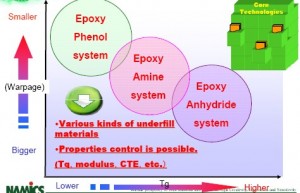
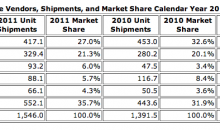
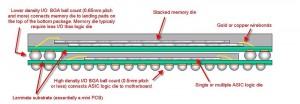
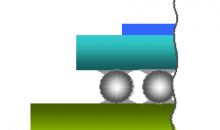
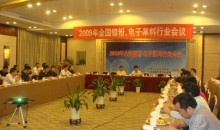
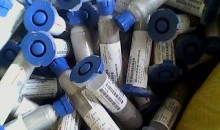
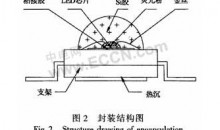
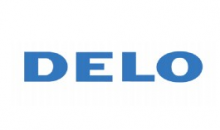
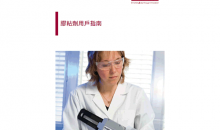
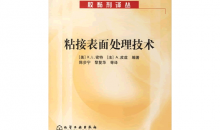
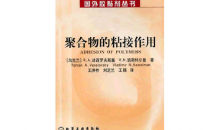
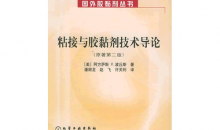
联系站长
Email:Anndiqiu#Gmail.com
Mobile Phone:13923499497
热门文章
数字
$2,242.7 Million Explore Global laminating adhesives market that is poised to be worth $2,242.7 million by 2019 了解更多 »